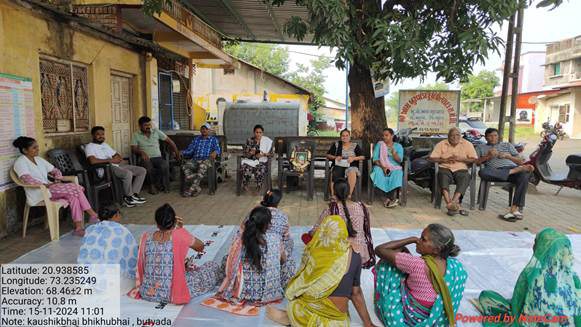In a historic achievement, the Government of Gujarat has taken a significant step in transforming Indian agriculture through digitalization. Under the Digital Agriculture Mission, announced on September 2, 2024, Gujarat has become the first state in India to generate Farmer IDs for 25% of the targeted farming population. This milestone was achieved on December 5, 2024, marking a crucial development in the creation of a comprehensive Digital Public Infrastructure (DPI) for agriculture.
The Digital Agriculture Mission and Agri Stack Initiative
The Digital Agriculture Mission, launched by the Government of India, is aimed at modernizing the agricultural sector by leveraging technology. At the heart of this mission is the Agri Stack initiative, a transformative framework designed to integrate various agricultural services and data into a cohesive, standards-driven digital ecosystem.
Key components of this initiative include:
1. Farmer IDs: Unique digital identifiers linked to farmers' Aadhaar or other government-verified documents.
2. Unified Database: A centralized repository of agricultural data to support decision-making and policymaking.
3. Smart Tools: Enabling the use of AI, IoT, and big data for enhanced productivity, resource optimization, and market access.
Gujarat’s Trailblazing Effort
Gujarat's achievement in generating Farmer IDs for 25% of its farmers highlights its leadership in implementing innovative solutions for agricultural development. The Farmer IDs serve as a gateway to multiple government schemes, subsidies, and services, ensuring that benefits reach the intended beneficiaries directly.
This initiative aims to empower farmers by:
Providing access to digital records of land holdings and cropping patterns.
Facilitating seamless applications for crop insurance and credit schemes.
Enabling better market linkages through e-commerce platforms.
Significance for Indian Agriculture
The success in Gujarat is expected to serve as a model for other states to emulate. By adopting DPI, India can address longstanding challenges in the agricultural sector, such as fragmented land holdings, lack of transparency in subsidy distribution, and inefficiencies in market access.
Union Agriculture Minister Narendra Singh Tomar congratulated Gujarat on its achievement, stating, "This milestone reflects India’s commitment to leveraging technology for sustainable agricultural growth. The Digital Agriculture Mission will revolutionize how farmers interact with the ecosystem, making it more inclusive and transparent."
Future Goals and Challenges
As part of the broader vision of the Digital Agriculture Mission, the Government of India aims to scale the Farmer ID generation process nationwide by 2026. The journey, however, involves overcoming challenges such as digital literacy, connectivity in rural areas, and data privacy concerns.
Conclusion
The successful implementation of the Farmer ID generation in Gujarat signals a promising start for India’s digital agricultural revolution. With continued efforts, the Digital Public Infrastructure for Agriculture could pave the way for an era of enhanced productivity, sustainability, and inclusivity in the agricultural sector.






%20(1).jpg)


















0 Comments